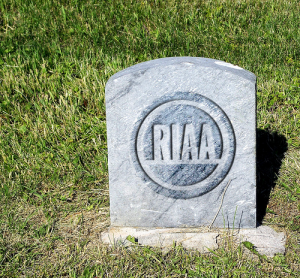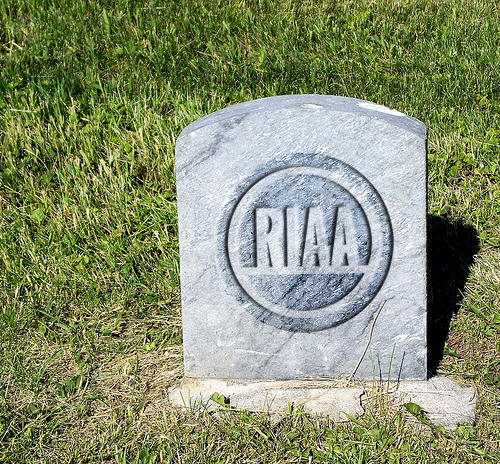 If you believe that the purpose of copyright is to compensate the creator of the content, that copyright is free market capitalism at work, or that the current copyright legal regime leads to the greatest innovation and productivity, there’s a recently released report you need to read.
If you believe that the purpose of copyright is to compensate the creator of the content, that copyright is free market capitalism at work, or that the current copyright legal regime leads to the greatest innovation and productivity, there’s a recently released report you need to read.
Notice the letterhead? Yeah, that memo came from the Republican Study Committee, which helps set policy for congressional Republican leaders. Keep in mind that even Democrats, most of whom at least half-heartedly support net neutrality, have never come this close to the outright rejection of the current copyright paradigm. The document at hand represents the most forward-thinking copyright policy ever presented at this upper echelon of government.
You can guess what happened next. Once the RIAA and MPAA got wind of the brief, they hit the phones hard and browbeat Republicans into issuing a full retraction of the too-sensible-to-be-true copyright policy memo. The Republican organization claims that this retraction was due to poor oversight, which is hard to believe since it wouldn’t have been released without plenty of oversight. We can plainly see the exact reason for the retraction is because the report is the antithesis of the RIAA and MPAA’s corrupt stance on copyright, and they went ballistic. It must be stressful working at an organizations that survives by perpetuating the kind of copyright myths that are so clearly debunked in the Republican Study Committee’s report. In that sense, the RIAA (and MPAA, but we’ll focus on the former) are mythical beasts that need to be slain for the greater good. Specifically:
1) The RIAA hides behind the myth that copyright is meant to compensate the artist, playing to our natural desire to compensate the creators for their works. Their #1 claim when protecting obscene exploitation of artists is hypocritically that they’re protecting the artist’s ability to make money. Never mind the wealth generated by these works is concentrated in corporate coffers, not the pockets of musicians whom they ruthlessly exploit, turning copyright around to victimize rather than enable artists. Modern music fans know that they’re not usually supporting the artist when they pay for access to music, because musicians are not the gatekeepers of access. Of course, musicians want to be heard more passionately than they want to be paid, and would prefer to keep their own gates, thank you. Fortunately, technology is changing in favor of the greater good, and one day not to far from now, the RIAA will be revealed for its true nature: As antiquated as the KKK.
2) As the report points out, “Copyright violates nearly every tenet of laissez faire capitalism” by entitling content producers “to a guaranteed, government instituted, government subsided content-monopoly.” Now, that wouldn’t be half as bad if that entitlement was actually due to musicians — of course, that is not so. Nearly every musician who has made a living recording music first had to sign over their entitled rights to be exploited by a third party. When you see that copyright protects corporate interests much like other questionable government subsidies that were originally meant to protect the average Joe, you see copyright needs to go, along with the RIAA.
3) The third myth in the report relates to the stifling of innovation by copyright, which was well-documented earlier this year in the research paper Copyright and Innovation: The Untold Story. In it, Michael A. Carrier of Rutgers University School of Law presents his findings from numerous in-depth interviews with business leaders from the past decade of digital music. His damning critique confirms what anyone in the digital music business knows anecdotally: the RIAA and its cronies, wielding copyright, have all but scorched the earth of innovation in the digital music industry. The RSC’s redacted copyright report supports Carrier’s conclusion, noting that our current corrupt copyright laws “Retarded the creation of a robust DJ/Remix industry” of the kind you see in many other countries — ever more depressing when you realize the US is used to being on the cutting edge of many new music movements.
It’s crystal clear to anyone studying the state of music that the RIAA has had a net negative effect on nearly every aspect — one might expect them to ruin music’s expressiveness and aesthetics in pursuit of profit, but they’ve really ruined the business they’re sworn to protect as well. I hope that folks working in cahoots with RIAA read this blog post and take this RSC report as a sliver of light shining through the exit door. Are you the head of a hydra hell-bent on destroying music, the biotechnology of group formation? Do you really think perpetuating copyright myths is helping musicians?
We can either face the truth and change for the better, or repeat the past and risk damaging music’s cultural, social and personal significants even further. Music will survive the crushing limitations of copyright, but those at the RIAA who are betting their gatekeeper position is sustainable have another thing coming.

